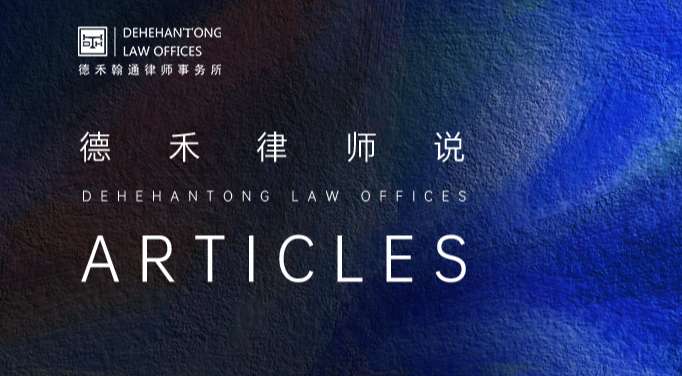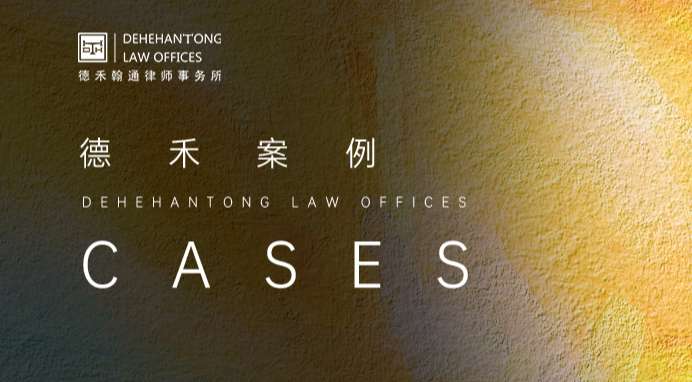The Supreme Court of California clarified: The exclusive jurisdiction clause legally restricts the rights of civil juries
On July 21, 2025, in the EpicentRx,Inc. V. Superior Court case ruled by the California Supreme Court (" California Supreme Court "), the articles of association of a Delaware company stipulated a Forum Selection Clause. Designate the Delaware Court of Chancery as the exclusive jurisdiction court for all shareholder disputes. The Supreme Court of California held that although the Delaware Court of Chancery, which was designated by the provision, did not guarantee the plaintiff's right to a jury trial in a civil case, the provision was not invalid due to its violation of public policy under California law.
This article will first briefly introduce the jury trial system in California civil litigation and the consensual jurisdiction system under California law, and then discuss the details of the EpicentRx,Inc.v.Superior Court case.
PART.01 Jury Trials in California Civil Litigation
Section 16 of Chapter 1 of the California Constitution clearly stipulates that "Trial by jury is an inviolation right and shall be secured to all, but in a civil cause three-fourths of the jury may render a verdict… In a civil cause a jury may be waived by the consent of the parties expressed as prescribed by "statute." That is, both civil and criminal cases are tried by juries. The jury system in civil cases can only be waived in the manner explicitly stipulated by law.
According to Section 631 of the California Civil Procedure Law, a party may waive the right to a jury trial by any of the following means: (1) Failing to appear in court for the trial; (2) Written consent submitted to the clerk or judge; (3) Orally agreed in court and recorded by the court; (4) Failing to declare the need for a jury trial at the time of the first arrangement of the case (if the arrangement was made by notice or agreement), or failing to declare the need for a jury trial within five days from the date of receiving the notice of the arrangement without notice or agreement; (5) Failure to pay the fees referred to in paragraph (b) [1]; (6) Failure to pay the prescribed fee on the second day and each subsequent day [2], unless other parties of the same party have paid such fee.
In 2005, in the case of Grafton Partners v.Superior Court, the Supreme Court of California held that giving up the right of a jury in advance before the dispute arose did not fall under the method of giving up a jury trial explicitly stipulated in Section 631 of the California Civil Procedure Law. Therefore, the prior waiver of the jury's right is an invalid clause. But the Delaware Court of Chancery does not apply jury trials. This further led to different practices of civil juries in the courts of the two regions.
PART.02 How do California courts handle the issue of jurisdictional agreements
California law, in principle, supports parties in independently determining the jurisdictional court through agreement before a dispute arises. Only in some special circumstances, for reasons such as public policy, are there restrictions on the parties' agreement to choose the court with jurisdiction. For example:
Section 20040.5 of the California Business and Professions Code stipulates that in a franchise agreement in California, if there is a provision that all disputes related to the agreement can only be settled outside California, As long as the franchise business is operated in California, the jurisdiction agreement clause is invalid.
Section (b) of California Commercial Code 10106 stipulates that in a consumer's personal property lease contract, if the dispute resolution court agreed upon by both parties is not in (1) the county where the lessee actually signed the lease contract, or (2) the county where the lessee actually resided at the time of filing the lawsuit; (3) The county where the lessee resides at the time when the lease contract takes effect; Or (4) The county where the leased property is permanently stored. The court's choice clause in this lawsuit is invalid.
Section 925, a, 1 of the California Labor Law stipulates that employers cannot agree with employees who mainly work and reside in California to submit disputes arising in California to courts in other states for jurisdiction. [3]
In this case, the jurisdiction agreement clause is simultaneously established in the company registration documents and the company's terms and conditions, and it does not fall within the scope of restrictions that California law intends to impose based on considerations such as public policy. Therefore, the parties involved should enjoy full freedom to enter into contracts.
PART.03 Analytical Thinking of the California Supreme Court in the EpicentRx case
In the EpicentRx,Inc.v.Superior Court case, the defendants included the target company, the controlling shareholder and ten individuals. The target company is a company registered in Delaware but with its main business location in California. At the same time, the registered and main business locations of its controlling shareholder are both in California. Nine of the ten individuals are California residents. The disputed incident mainly occurred in San Diego, California. Therefore, the plaintiff contends that the California court should have jurisdiction over this case. The defendant, based on the agreed jurisdiction clause, asserted that the case should be under the jurisdiction of the Court of Equity of Delaware.
Both the first instance court and the second instance court held that since the Delaware Court of Equity was unable to guarantee the parties' right to a jury trial, the decision by all parties to have the Delaware Court of Equity exercise jurisdiction was a waiver of the right to a jury trial before the dispute arose. Such waiver acts violate California's public policy, and therefore such jurisdictional provisions should be regarded as invalid agreements.
However, the Supreme Court of California pointed out that the strong protection of the right to jury trial in the California Constitution should be limited to litigation conducted in California and not applicable to litigation conducted in other jurisdictions. It is inappropriate to draw an analogy between the jurisdictional agreement clause and the clause that waives jury rights in advance. The former addresses the issue of where a lawsuit will take place (where), while the latter determines how a lawsuit will proceed (how) [4].
The Supreme Court of California further held that, from the perspective of facilitating business development, fair transactions among mature commercial entities may rely on the selection of a dispute resolution court, such as a foreign court, which does not offer civil jury trial power. For instance, a California enterprise may wish to enter into a contract with a foreign enterprise, but the foreign enterprise will only agree to the transaction if any dispute must be heard by its own court. Although the foreign court does not have the authority to conduct civil jury trials, California businesses may still consider such an arrangement to their advantage.
However, according to the legal framework adopted by the lower courts, any jurisdiction clause designating the foreign court as the court of trial is essentially unenforceable. Foreign enterprises may be reluctant to conduct transactions with California enterprises in the absence of ensuring the enforceability of such jurisdictional provisions, and California enterprises will thereby lose the transaction benefits they could have obtained, even if they are willing to agree to the arrangement.
Based on the above analysis, the Supreme Court of California overturned the case, clearly stating that the case should be heard by the equity court of Delaware.
PART.04 Inspiration from This Case
This case further highlights the California Supreme Court's respect for the autonomy of will and jurisdiction by agreement between the parties. It can be foreseen that in future judicial practice, it will be very difficult to challenge the validity of the jurisdictional agreement clause merely on the grounds that courts in other states cannot guarantee the right of parties to be tried by a jury in civil cases. During the signing process of any agreement text, necessary attention should be paid to the jurisdiction provisions of the agreement to avoid imposing additional burdens on litigation due to improper jurisdiction provisions of the agreement after disputes arise.
Footnote
[1]. In civil cases, if at least one party from each party requests a jury trial, a non-refundable fee of 150 US dollars shall be paid, unless other parties from the same party have paid such fee.
[2]. According to Section 631 e of the California Civil Procedure Law, a party requesting a jury trial shall pay the clerk or judge an amount equivalent to the jury fee and mileage allowance for that day at the beginning of the trial on the next day and each subsequent day. If multiple parties request a jury trial, the specific amount each requesting party should pay per day shall be determined through negotiation among the parties or by a court ruling.
[3]. However, if an employee has personally engaged a lawyer when negotiating a contract with the employer, this clause does not apply.
[4].“The former reflects where a dispute will be litigated, while the latter reflects how it will be litigated”















